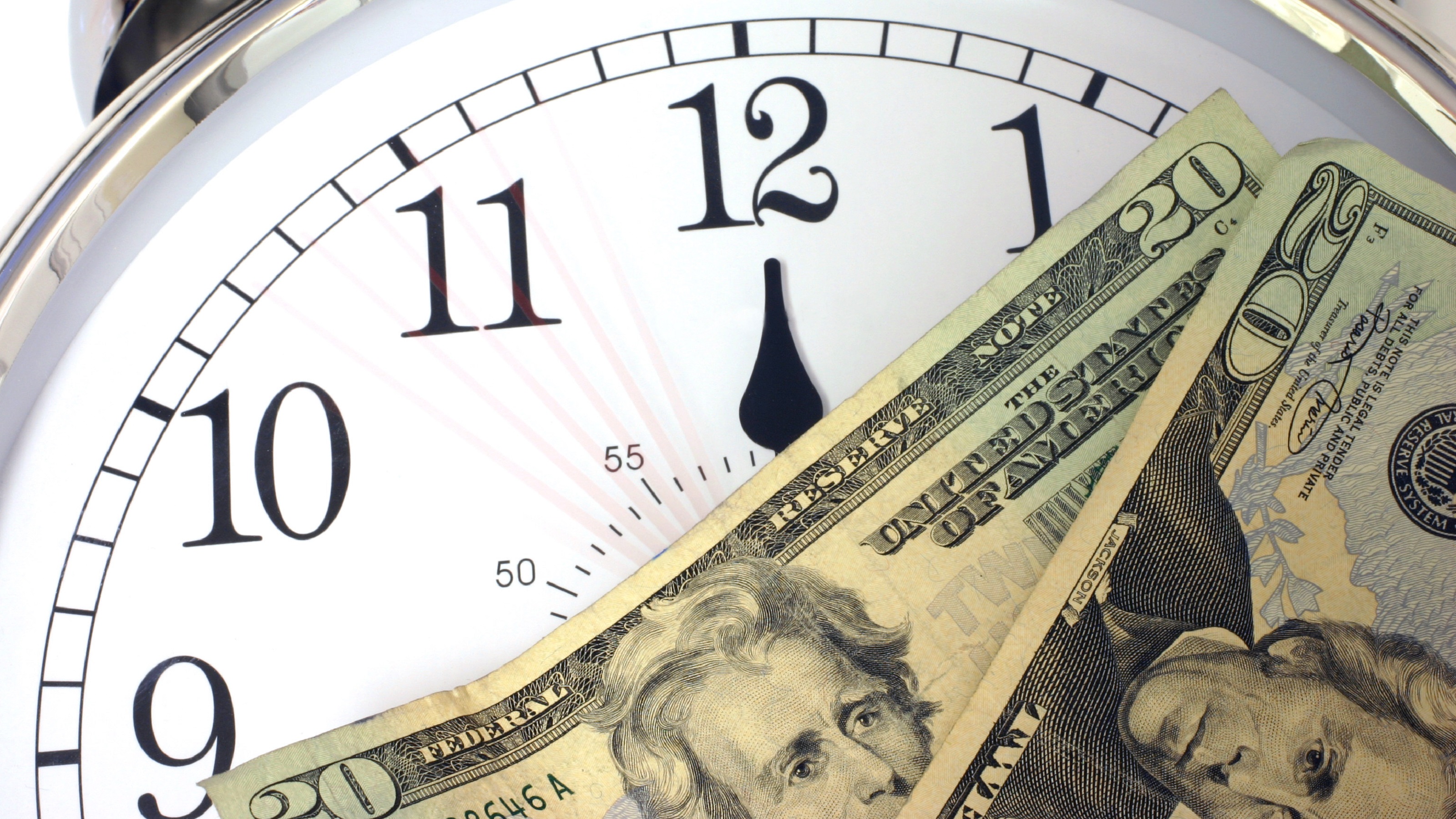
Profit and prosper with the best of Kiplinger's advice on investing, taxes, retirement, personal finance and much more. Delivered daily. Enter your email in the box and click Sign Me Up.
You are now subscribed
Your newsletter sign-up was successful
Want to add more newsletters?

Delivered daily
Kiplinger Today
Profit and prosper with the best of Kiplinger's advice on investing, taxes, retirement, personal finance and much more delivered daily. Smart money moves start here.

Sent five days a week
Kiplinger A Step Ahead
Get practical help to make better financial decisions in your everyday life, from spending to savings on top deals.

Delivered daily
Kiplinger Closing Bell
Get today's biggest financial and investing headlines delivered to your inbox every day the U.S. stock market is open.

Sent twice a week
Kiplinger Adviser Intel
Financial pros across the country share best practices and fresh tactics to preserve and grow your wealth.

Delivered weekly
Kiplinger Tax Tips
Trim your federal and state tax bills with practical tax-planning and tax-cutting strategies.

Sent twice a week
Kiplinger Retirement Tips
Your twice-a-week guide to planning and enjoying a financially secure and richly rewarding retirement

Sent bimonthly.
Kiplinger Adviser Angle
Insights for advisers, wealth managers and other financial professionals.

Sent twice a week
Kiplinger Investing Weekly
Your twice-a-week roundup of promising stocks, funds, companies and industries you should consider, ones you should avoid, and why.

Sent weekly for six weeks
Kiplinger Invest for Retirement
Your step-by-step six-part series on how to invest for retirement, from devising a successful strategy to exactly which investments to choose.
As an employee of a financial-planning firm, Neil Brown follows his own advice and makes the maximum contribution to his company's 401(k) plan. But he also runs a side business, as a public speaker and financial educator. So more than 10 years ago, he established a “solo 401(k)”–a special type of retirement plan for someone who is self-employed or a business owner with no employees, other than a spouse. Brown funds it with about 20% of his net profits when times are flush for his side gig, but he can skip contributions during lean years. He's added about $100,000 to his retirement savings this way. “It works really well for me,” says Brown, a wealth manager with Burkett Financial Services, in West Columbia, S.C.
Whether you are running a side business or you are entirely self-employed, you have options when it comes to saving for retirement. It won't be as simple as filling out a form at work, but you'll have other advantages. You can choose among several retirement plans that, just like an employer's 401(k), allow you to make pretax contributions that grow tax-deferred until you withdraw the money. If you choose to make after-tax Roth contributions to your solo 401(k), withdrawals in retirement will be tax-free.
Some self-employed plans allow you to contribute far above the limits for a traditional or a Roth IRA. With a solo 401(k), for example, you can put in money both as employee and as employer, meaning you could potentially contribute as much as $55,000 of your self-employment income. Compare that to the $5,500 annual IRA limit. (Note: Those 50 and older can stash up to $6,000 extra in a solo 401(k) and up to $1,000 extra in an IRA.) If you also have a company retirement plan, use it to save even more for retirement, and on your tax bills, by participating in that company plan, too.
From just $107.88 $24.99 for Kiplinger Personal Finance
Become a smarter, better informed investor. Subscribe from just $107.88 $24.99, plus get up to 4 Special Issues

Sign up for Kiplinger’s Free Newsletters
Profit and prosper with the best of expert advice on investing, taxes, retirement, personal finance and more - straight to your e-mail.
Profit and prosper with the best of expert advice - straight to your e-mail.
Popular plans for the self-employed include the solo 401(k), the SEP (simplified employee pension) IRA, and a SIMPLE (Savings Incentive Match Plan for Employees) IRA. All are generally easy and inexpensive to set up and maintain. But you do need to pay attention to each plan's limits and rules. Not all solo 401(k) administrators offer a Roth option, for example. (Compare solo 401(k)s, SEP IRAs and SIMPLE IRAs.)
With the growth of the gig economy and more people working as consultants, freelancers and contractors, there's growing interest in all the plans, says Maura Cassidy, vice president of retirement products for Fidelity. “I think people are trying to figure all this out,” says Cassidy. “Maybe they had a 401(k) at their old job, so the first thing they start with is `Hey, I need a 401(k) for myself.' “
Analyze Your Choices
The new tax law will have an impact on retirement plans and may affect the decisions you make about how to save for retirement. For example, sole proprietors, partnerships and other pass-through entities can now deduct 20% of their profits from their taxable income. But there's a caveat, says Jeffrey Levine, director of financial planning for BluePrint Wealth Alliance, in Garden City, N.Y. The 20% pass-through deduction will be applied to the lesser of your qualified business income or taxable income minus any capital gains.
Here's an example: A sole proprietor has net profit from his business of $100,000 and makes a $20,000 SEP IRA contribution. Along with his self-employment tax deduction of about $7,500, that brings his adjusted gross income to $72,500. He then claims the $12,000 standard deduction, which reduces his taxable income to $60,500. Because his taxable income is lower than his qualified business income, his pass-through deduction is 20% of $60,500, or $12,100.
If the rate cuts included in the new law expire as scheduled in seven years, you might end up in a higher tax bracket in the future. In some cases, then, it may make more sense to contribute to a Roth now rather than a traditional retirement plan. A doctor approaching retirement who is still working and already has $5 million in a retirement plan, for example, might be better off contributing to a Roth, because when he retires, he could find himself in a higher tax bracket, says Robert Keebler, a partner with Keebler & Associates, a tax advisory and estate-planning firm in Green Bay, Wis. Another strategy: Split the difference. Contribute to a Roth and a traditional plan.
Certain professional service businesses, such as law firms and doctor's offices, can only get the full 20% pass-through deduction if they earn below $315,000 (for married couples). But an optometrist earning $375,000 could try to lower his taxable income enough to qualify by contributing pretax dollars to a retirement plan, Keebler says.
Whatever plan you choose, look for a “sweet spot” that allows you to maximize your retirement savings and lower your tax bill. Think about how much you earn and how much you can afford to save. If you're making $300,000 annually but spending $275,000, then a regular IRA might be your best bet.
From there, ask yourself a few questions, says Fidelity's Cassidy: Is it truly just yourself running the business, or do you have employees? Do you want a plan allowing only employer contributions, or can employees contribute? Also, compare plans based on ease of set-up, contribution limits and administration costs.
If you are a high earner, getting older and behind on your retirement savings, you might want to consider a defined-benefit retirement plan, says Paul Danziger, president of Freedom Financial Advisors, in Bethesda, Md. You can contribute more to such a plan than you can to a defined-contribution plan such as a 401(k). Danziger has a 71-year-old client, the owner of a building company, who earns about $275,000 annually and now contributes $230,000 per year. “A lot of people make a nice living, but they don't end up saving a lot of money,” Danziger says. “They get to be 55 and they find they are way behind on retirement.”
Defined-benefit plans, though, typically have higher set up and maintenance costs. You'll likely need to pay an actuary or third-party administrator at least $1,500 to establish the plan documents and about $2,200 to $3,000 annually to prepare tax filings.
To further explore your plan options, check out resources for small business retirement plans at IRS.gov or use free online tools such as Fidelity's Solo 401(k) calculator.
Profit and prosper with the best of Kiplinger's advice on investing, taxes, retirement, personal finance and much more. Delivered daily. Enter your email in the box and click Sign Me Up.

-
 Nasdaq Leads a Rocky Risk-On Rally: Stock Market Today
Nasdaq Leads a Rocky Risk-On Rally: Stock Market TodayAnother worrying bout of late-session weakness couldn't take down the main equity indexes on Wednesday.
-
 Quiz: Do You Know How to Avoid the "Medigap Trap?"
Quiz: Do You Know How to Avoid the "Medigap Trap?"Quiz Test your basic knowledge of the "Medigap Trap" in our quick quiz.
-
 5 Top Tax-Efficient Mutual Funds for Smarter Investing
5 Top Tax-Efficient Mutual Funds for Smarter InvestingMutual funds are many things, but "tax-friendly" usually isn't one of them. These are the exceptions.
-
 I'm a Financial Planner: Here Are Five Lesser-Known Ways to Avoid Estate Tax
I'm a Financial Planner: Here Are Five Lesser-Known Ways to Avoid Estate TaxThe clock is ticking on the estate and gift tax provisions in the Tax Cuts and Jobs Act, so the sooner you act on removing assets from your estate, the better.
-
 The Future of Opportunity Zones: Outlook for 2025 and Beyond
The Future of Opportunity Zones: Outlook for 2025 and BeyondThere are three potential paths forward for this innovative tax incentive program that's set to expire in 2026.
-
 First 100 Days: Trump's Impact on Your Finances
First 100 Days: Trump's Impact on Your FinancesHere are some opportunities to consider regarding investing, interest rates and tax cuts as the financial landscape shifts under the new administration.
-
 457 Plan Contribution Limits for 2026
457 Plan Contribution Limits for 2026Retirement plans There are higher 457 plan contribution limits in 2026. That's good news for state and local government employees.
-
 Medicare Basics: 12 Things You Need to Know
Medicare Basics: 12 Things You Need to KnowMedicare There's Medicare Part A, Part B, Part D, Medigap plans, Medicare Advantage plans and so on. We sort out the confusion about signing up for Medicare — and much more.
-
 The Seven Worst Assets to Leave Your Kids or Grandkids
The Seven Worst Assets to Leave Your Kids or Grandkidsinheritance Leaving these assets to your loved ones may be more trouble than it’s worth. Here's how to avoid adding to their grief after you're gone.
-
 The Clock Is Ticking on Tax Cuts: Act Now to Avoid Missing Out
The Clock Is Ticking on Tax Cuts: Act Now to Avoid Missing OutEstate and gift tax exemptions are at an all-time high until the end of 2025. That may seem like a long way off, but setting things up could take longer than expected.
-
 SEP IRA Contribution Limits for 2026
SEP IRA Contribution Limits for 2026SEP IRA A good option for small business owners, SEP IRAs allow individual annual contributions of as much as $70,000 in 2025, and up to $72,000 in 2026.
